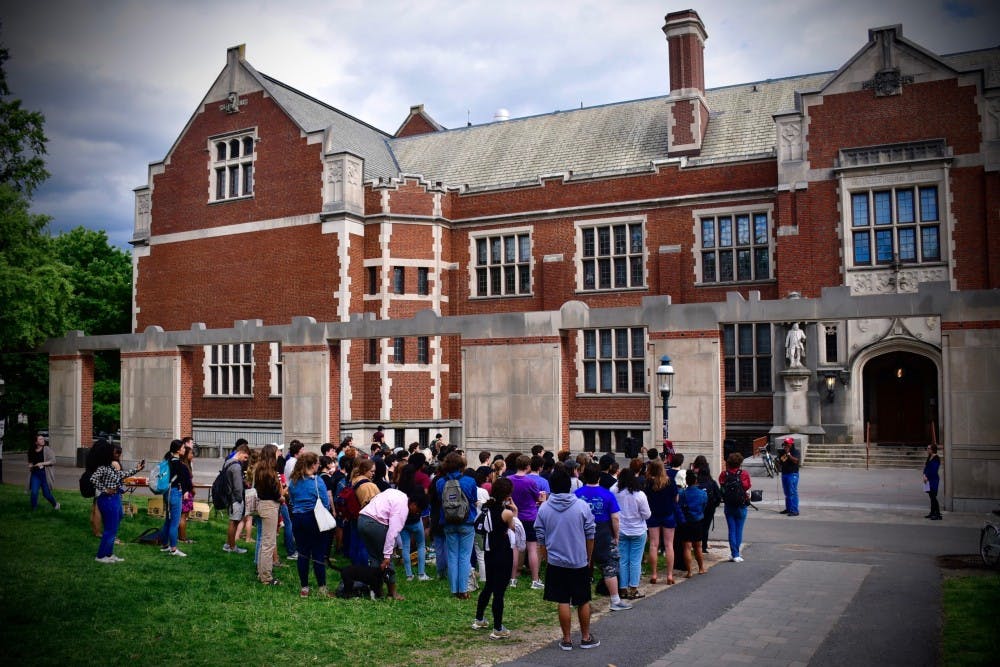Despite the persistent advocacy of Students for Prison Education and Reform, the University has refused to “Ban the Box” — that is, eliminate a section on its application asking for prospective students’ criminal history. As SPEAR explained in The Daily Princetonian, students with criminal records are highly likely to experience rejection from institutions of higher education — and yet, paradoxically, access to higher education is critical to lessening recidivism.
Although the prospect of banning the box surely raises difficult legal, practical, and moral questions, the box should be banned.
To begin with, people who’ve committed a crime and served their time in the correctional system should once again obtain the rights of full citizenship and socio-legal equity. Disadvantaging ex-offender applicants in the admissions process contradicts this fundamental democratic principle. Also, given the disproportionate number of people of color — especially black men — who’ve been a part of the correctional system, such a disadvantage serves as a de facto form of racial and class-based bias in the admissions process.
Nonetheless, President Christopher Eisgruber ’83 has pushed back against the Ban the Box campus movement by maintaining that asking applicants for their criminal history is essential to ensuring campus safety. “I think there are some kinds of criminal activity that may be related to risks that could occur on the campus. So we take those risks seriously,” Eisgruber explained at last November’s Council of the Princeton University Community meeting.
There is atrociously limited research on the impact of banning the box on campus crime rates. But the research that is available suggests that banning the box does not make campuses any less safe. And, more broadly, a fundamental social illogic undergirds the argument that campus safety risks justify excluding formerly incarcerated applicants.
If a person who has committed a violent crime and who has served his time in the correctional system is rejected from Princeton because the University fears he is more likely to be violent, this individual will remain a threat to public safety in general, according to the University’s logic; he’ll just be more likely to commit violence outside of FitzRandolph Gate than on campus.
While the University may justify a “not in our backyard” stance by noting that it is tasked to protect the campus community above all else, I find it strange that the University would be de facto neutral to the prospect of this person assaulting people, so long as he is doing so off campus. After all, isn’t the University in the service of humanity, not just in the service of its own institutional interests?
Plus, the idea that a formerly incarcerated applicant is more likely to commit a crime on a college campus than in the general public is misguided — in fact, formerly incarcerated applicants are probably less likely to be violent on a college campus, given that universities, for a multitude of socio-cultural and structural reasons, are currently some of the safest places in the United States in terms of crime rates, and given that the limited number of universities that already banned the box have remained just as safe.

More importantly, the need to mitigate the cruelty and systematic racism of the criminal justice system outweighs any alleged public safety risks posed by accepting formerly incarcerated applicants.
In a true liberal democracy, people who’ve done wrong ultimately deserve mercy, empathy, and second chances, especially after they have served their time. Once an individual has paid her “debt to society” by serving time in the correctional system, she should be able to genuinely move forward and live without fear of discrimination. If she’s denied the rights and liberties of life beyond the criminal justice system, she remains fundamentally incarcerated.
But despite the profound moral importance of the Ban the Box campaign, it does not go far enough in redressing the injustice of the American correctional system.
In fact, an individual who is academically qualified to go to a school like Princeton despite enduring the profoundly racist and classist inequities of the criminal justice system and the abject horrors of incarceration should be affirmatively advantaged in the admissions process.

Most of us would be incapable of surviving the blood-curdling cruelty of this country’s criminal justice system and being a competitive Ivy League applicant. Consequently, students who, despite the odds, shined academically while enduring the correctional system should be at the front of the line for admission — or, at the absolute least, they should not be disadvantaged by their criminal records.
Hence, the University should not only ban the box but also allow applicants the option to describe their engagement with the criminal justice system and regard otherwise qualified applicants who have survived the system as exceptional candidates for admission.
The way we treat the most vulnerable in our society most thoroughly illuminates the moral fabric of our intellectual community. Formerly incarcerated applicants are among the most vulnerable, and we should treat them with respect, if not admiration.
Samuel Aftel is a junior from East Northport, N.Y. He can be reached at saftel@princeton.edu.








